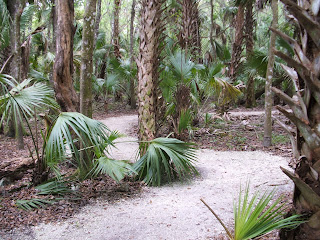I am a man of constant sorrow
I've seen trouble all my day.
I bid farewell to old Kentucky
The place where I was born and raised.
For six long years I've been in trouble
No pleasures here on earth I found
For in this world I'm bound to ramble
I have no friends to help me now.
You can bury me in some deep valley
For many years where I may lay
Then you may learn to love another
While I am sleeping in my grave.
Maybe your friends think I'm just a stranger
My face you'll never see no more.
But there is one promise that is given
I'll meet you on God's golden shore.
I've seen trouble all my day.
I bid farewell to old Kentucky
The place where I was born and raised.
For six long years I've been in trouble
No pleasures here on earth I found
For in this world I'm bound to ramble
I have no friends to help me now.
You can bury me in some deep valley
For many years where I may lay
Then you may learn to love another
While I am sleeping in my grave.
Maybe your friends think I'm just a stranger
My face you'll never see no more.
But there is one promise that is given
I'll meet you on God's golden shore.
///////////
Aldo Leopold (January 11, 1887 – April 21, 1948) was an
American author, scientist, ecologist, forester, and environmentalist.
He was a
professor at the University of Wisconsin and is best known for his book A Sand
County Almanac (1949), which has sold over two million copies. He was
influential in the development of modern environmental ethics and in the
movement for wilderness conservation.
His ethics of nature and wildlife
preservation had a profound impact on the environmental movement, with his
biocentric or holistic ethics regarding land. He emphasized biodiversity and
ecology and was a founder of the science of wildlife management.
Leopold's nature writing is notable for its simple
directness. His portrayals of various natural environments through which he had
moved, or had known for many years, displayed impressive intimacy with what
exists and happens in nature. He offered frank criticism of the harm he
believed was frequently done to natural systems (such as land) out of a sense
of a culture or society's sovereign ownership over the land base – eclipsing
any sense of a community of life to which humans belong.
He felt the security
and prosperity resulting from "mechanization" now gives people the
time to reflect on the preciousness of nature and to learn more about what
happens there. However, he also writes "Theoretically, the mechanization
of farming ought to cut the farmer's chains, but whether it really does is
debatable."
“As a society, we are
just now beginning to realize the depth of Leopold’s work and thinking.”
- Mike Dombeck, Chief Emeritus U.S. Forest Service,
Professor of Global Environmental Management UW-Stevens Point, UW System Fellow
of Global Conservation
Considered by many as the father of wildlife management and
of the United States’ wilderness system, Aldo Leopold was a conservationist,
forester, philosopher, educator, writer, and outdoor enthusiast.
Born in 1887 and raised in Burlington, Iowa, Aldo Leopold
developed an interest in the natural world at an early age, spending hours
observing, journaling, and sketching his surroundings.
Graduating from the Yale
Forest School in 1909, he eagerly pursued a career with the newly established
U.S. Forest Service in Arizona and New Mexico. By the age of 24, he had been
promoted to the post of Supervisor for the Carson National Forest in New
Mexico.
In 1922, he was instrumental in developing the proposal to manage the
Gila National Forest as a wilderness area, which became the first such official
designation in 1924.
Following a transfer to Madison, Wisconsin in 1924, Leopold
continued his investigations into ecology and the philosophy of conservation,
and in 1933 published the first textbook in the field of wildlife management.
Later that year he accepted a new chair in game management – a first for the
University of Wisconsin and the nation.
In 1935, he and his family initiated their own ecological
restoration experiment on a worn-out farm along the Wisconsin River outside of
Baraboo, Wisconsin. Planting thousands of pine trees, restoring prairies, and
documenting the ensuing changes in the flora and fauna further informed and
inspired Leopold.
A prolific writer, authoring articles for professional
journals and popular magazines, Leopold conceived of a book geared for general
audiences examining humanity’s relationship to the natural world.
Unfortunately, just one week after receiving word that his manuscript would be
published, Leopold experienced a heart attack and died on April 21, 1948 while
fighting a neighbor’s grass fire that escaped and threatened the Leopold farm
and surrounding properties.
A little more than a year after his death Leopold’s
collection of essays A Sand County Almanac was published. With over two million
copies sold, it is one of the most respected books about the environment ever
published, and Leopold has come to be regarded by many as the most influential
conservation thinker of the twentieth century.
Leopold’s legacy continues to inform and inspire us to see
the natural world “as a community to which we belong.”
Blog Index
Blog Index














